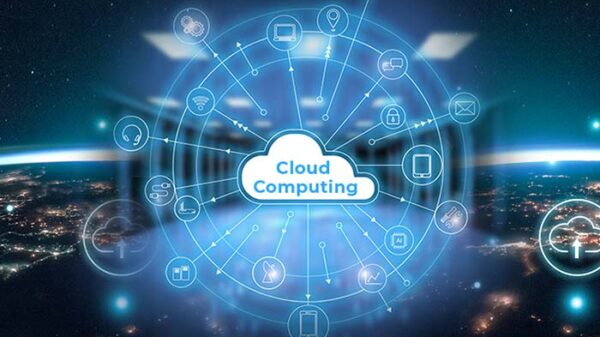If you thought 4G was fast, think again! The world is about to experience a whole new level of connectivity and communication with the advent of 5G technology. Get ready for lightning-fast speeds, unprecedented reliability, and an internet of things that will change the way we live our lives.
Introduction to 5G Technology
The term “5G” is short for “fifth-generation wireless,” and refers to the next major phase of mobile telecommunications standards. 5G will be much faster than current 4G LTE networks, with peak data rates of up to 20 Gbps. That’s 10 times faster than what you can get on a 4G network today.
But speed and low latency are just the beginning. 5G will also enable a new class of applications that require very high reliability and ultra-low latency, such as real-time remote surgery and autonomous vehicles. To support these applications, 5G networks will need to be built differently from previous generations of mobile networks. They will need to be more dense, with many more small cell sites deployed closer together.
The first commercial 5G networks are expected to launch in 2019, with widespread deployment in 2020 and beyond. But the development of 5G technology is already well underway, with standards bodies like the 3rd Generation Partnership Project (3GPP) working on the technical specifications for 5G systems. And equipment
Benefits of 5G Networking
The much-anticipated 5G networks are now beginning to be rolled out across the world. This new generation of cellular technology promises a major step up in speed and capacity, with peak speeds of around 20 Gbps and the ability to support up to one million devices per square kilometer. 5G will also bring about a significant reduction in latency, with end-to-end delays of just one millisecond.
This all sounds very impressive, but what does it actually mean for businesses and consumers? Here are some of the key benefits of 5G networking:
Increased Speed and Capacity
The most obvious benefit of 5G is the increased speed and capacity that it offers. This will allow businesses to transmit large amounts of data quickly and efficiently, without having to worry about congestion or bottlenecks. It will also enable them to offer new services and applications that require high levels of bandwidth. For consumers, this means faster download speeds and the ability to stream high-quality video content without buffering.
Reduced Latency
The low latency offered by 5G networks is particularly beneficial for businesses that need to carry out real-time data processing, such as financial institutions or online gaming companies. It will also be useful for applications that require quick response times, such as virtual reality or autonomous vehicles. For consumers, this will result in a smoother and more responsive experience when using applications such as live streaming services or online gaming.
Potential Impact on Industries and Consumers
The G technology promises to revolutionize the way we communicate and connect with each other. For businesses, this means more efficient ways to connect with customers and employees. For consumers, this means faster internet speeds, easier ways to stay connected with friends and family, and better access to information.
Some of the potential impacts of G technology on industries and consumers include:
-Faster internet speeds for everyone
-More reliable connections with less downtime
-Better quality video calls and audio calls
-New applications and services that take advantage of the high speed and low latency of G technology
-Increased competition among service providers leading to lower prices for consumers
-More jobs in the tech industry as businesses invest in G technology infrastructure
Challenges of 5G Technology
The deployment of 5G technology is no small feat. In order to achieve the high speeds and low latency that 5G promises, a new infrastructure must be built from the ground up. This includes installing new base stations and small cells, as well as upgrading existing infrastructure to support the new technology.
This upgrade process is costly and time-consuming, which has led some to question whether or not 5G will be worth the investment. In addition, there are still many unknowns about 5G technology, which makes it difficult to plan for and deploy.
Despite these challenges, 5G deployment is underway in many parts of the world. The benefits of this new technology are too great to ignore, and with continued research and development, the challenges of 5G deployment will eventually be overcome.
Security Concerns with 5G Technology
The next generation of wireless networks, known as 5G, is set to revolutionize how we connect and communicate. But with this new technology comes new security concerns that must be addressed.
5G networks are much faster and more efficient than previous generations, which means they can handle a lot more data traffic. This increased capacity could be exploited by hackers looking to overload the system or steal data.
Another concern is that 5G networks will use higher frequency waves than previous generations. These waves are more easily absorbed and scattered, which makes it difficult to shield against interference. This could lead to signal disruptions and security breaches.
Finally, 5G networks will be deployed in a much more distributed manner than previous generations. This means there will be more access points and more potential entry points for hackers to exploit.
Fortunately, there are steps that can be taken to mitigate these security concerns. For example, encrypting data transmissions will make it much harder for hackers to intercept and read them. And using firewalls and other security measures at each access point will help to keep hackers out of the network altogether.
By taking these precautions, we can ensure that 5G networks are secure and ready to handle the massive increase in data traffic that they are expected to experience.
The Future of 5G Technology
The future of 5G technology is looking very promising. With the release of new standards and the continued development of new technologies, 5G is poised to revolutionize the way we connect and communicate.
5G will enable faster speeds, lower latency, and more reliable connections. This will open up a whole new world of possibilities for businesses and consumers alike. For businesses, 5G will provide the ability to connect more devices and sensors than ever before, enabling them to collect data in real time and make better decisions. For consumers, 5G will provide a more immersive experience with augmented reality and virtual reality.
One of the most exciting aspects of 5G is its potential to enable the Internet of Things (IoT). With 5G, businesses will be able to connect devices such as security cameras, lights, and thermostats to the internet, allowing them to be controlled remotely. This will create new opportunities for efficiency and cost savings. Additionally, the IoT has the potential to improve public safety by providing real-time information on traffic conditions or weather events.
Conclusion
The 5G technology is a game-changer that will have far-reaching implications for the way we communicate and interact with each other. With its increased speed, reliability and capacity, it can open up new possibilities in areas such as healthcare, education, entertainment etc., which will make our lives more convenient and efficient.









